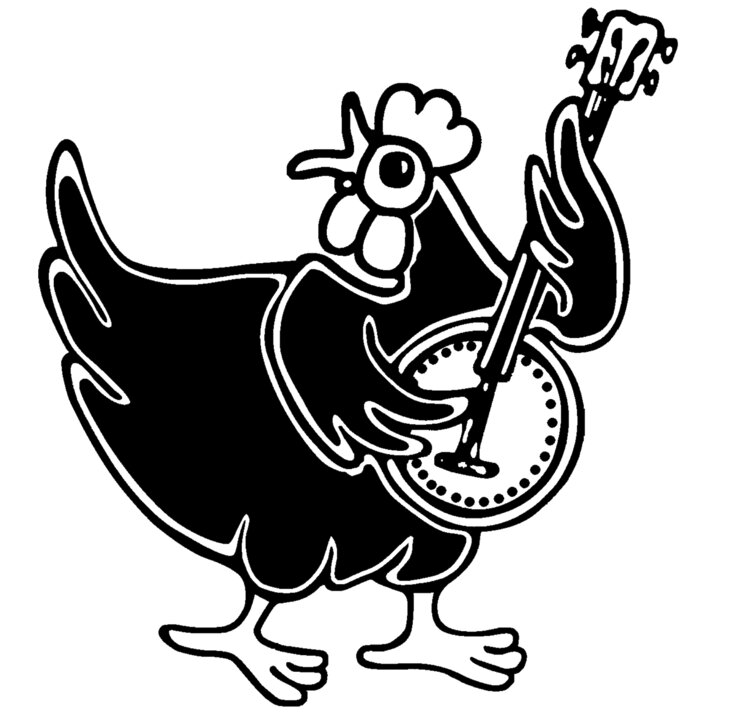To hardcore fans of the genre, it's no surprise that country music just ain't what it used to be. Sure, the great Willie Nelson has outlived all his old friends to become a beacon of light for the "good old days," but no matter how one slices it, today's focus group-created, franken-protooled country "superstars" like Kenny Chesney, Blake Shelton, the Band Perry and their ilk are no prize pig when compared to the pioneers of the genre like Hank Williams, Johnny Cash, George Jones, Patsy Cline, and other Nashville legends.
Although firmly identified with Canada's thriving blues scene, in truth, singer/songwriter Jim Byrnes has more in common with the Band's Levon Helm than with, say, Muddy Waters. Byrnes - who was born in St. Louis, but moved to Vancouver B.C. better than 30 years ago - and the late Helm both draw heavily from across a wide swath of American musical history, from blues and rock to folk and country. Both artists pursue a distinctive roots 'n' blues musical style and possess warm, deep, and totally unique voices that wrap themselves around the material.
So, when Byrnes decided to record an album of mostly old-school country music tunes with his long-time musical foil, producer and multi-instrumentalist Steve Dawson, the project doesn't fall as far out of the singer's wheelhouse as one might suppose. With I Hear The Wind On The Wires (Black Hen), Byrnes has a firm handle on what made these songs by Ray Price, Hank Snow, the Stanley Brothers, Gordon Lightfoot, and others timeless in nature, so much so that Nashville songwriters are still trying to capture that creative lightning in the bottle today.
Byrnes chose a true honky-tonk classic to kick off I Hear The Wind In The Wires, Hank Snow's "I'm Movin' On" a number one hit for the Canadian singer and songwriter, a song recorded by everybody from Snow and Willie Nelson to Ray Charles and Elvis Presley. Byrnes plays it straight down the line, laying his twangy vocals atop a flurry of Scotty Moore-styled guitar licks and squalls of Chris Gestrin's funky roller-rink organ riffs, throwing in a few hollers now and then to lively up the joint. Continuing on in this vein, Byrnes' spin on "City Lights" is a little more jaunty than Ray Price's original, but if Byrnes' vocals sound more melancholy than heartbroken, his anguish is punctuated by Dawson's weeping pedal steel guitar.
When Buck Owens put his Bakersfield sound to Harlan Howard's "Above and Beyond (The Call of Love)" in 1960 he scored a 3 chart hit with the tune. Howard, perhaps Nashville's last great country songwriter, had a way of stripping a lyric down to its emotional core, and Byrnes takes the ball and runs with it, hitting every heartfelt note with his romantic promises, the steel guitar moaning in the background as a lonely piano rides alongside the mid-tempo rhythm. Byrnes' take on the song is closer to Owens' than Rodney Crowell's otherwise solid 1989 cover (which did what Buck's couldn't in hitting 1 on the chart), capturing the original's winsome spirit with a believable passion.
Byrnes' duet with Colleen Rennison on "Pickin' Wild Mountain Berries" is simply precious, the performance skewing closer to the R&B styled, 1960s-era Jo Jo Benson/Peggy Scott hit than to the later Loretta Lynn/Conway Twitty "countrypolitan" version. Rennison's sassy, soulful vocals are a delightful counterpoint to Byrnes' raspy baritone, the two voices playing perfectly off each other on what is admittedly a lighthearted bit of fluff, a real guilty pleasure of a song. On the other end of the spectrum, Byrnes' cover of the 1960 Marty Robbins hit "Big Iron" is pure C&W heaven, Byrnes' voice tailor-made for this rollicking story of an unnamed Arizona ranger with "the big iron on his hip" who faces down outlaw Texas Red in a gunfight only one would walk away from. With Dawson's pleading guitar riding shotgun above a rich instrumental backdrop, Byrnes unfolds the gripping tale and drives it to its tragic conclusion.
Switching gears for a moment, "Sensitive Man" sounds like a vintage Ricky Nelson track, or maybe even modern Threk Michaels, the song's melodic undercurrent and rolling heartbeat matched by its James Burton-styled twang 'n' bang stringplay and Byrnes' conversational vocals leading out at the end. Surprisingly, it's a Nick Lowe composition, which you can hear elements of in the chorus and in Byrnes' delivery, but then again, ol' Nick always did have one foot in the Music City even back with the Brinsley Schwarz band. I Hear The Wind In The Wires closes out appropriately with Hank's 1952 hit "Honky Tonk Blues," Byrnes retaining the original's bluesy underpinnings even while playing up the song's more playful, raucous side as Mike Sanyshyn's fiddle rages and Gestrin's organ chimes away low in the mix.
Jim Byrnes has always included a fair number of other people's songs on his albums - 2010's Juno Award winning Everywhere West, for instance, offers up great covers of R&B (Lowell Fulsom), jump blues (Louis Jordan), and straight blues (Jimmy Reed, a major Byrnes influence) alongside Byrnes' own rootsy originals, and in the past he's covered everybody from Mel Tillis and Irving Berlin to Bob Dylan and Muddy Waters...so it's no secret that the man is a masterful stylist and interpreter of songs.
With I Hear The Wind In The Wires, however, Byrnes delivers a true labor of love, challenging himself to try his hand in re-creating an era of country music that, woefully, no longer exists. The results speak for themselves, the performances of Byrnes, Dawson, and band shining brightly from the grooves of I Hear The Wind In The Wires, imbuing the material with the same sort of energy and passion that first generation country music pioneers brought to it back in the day.
